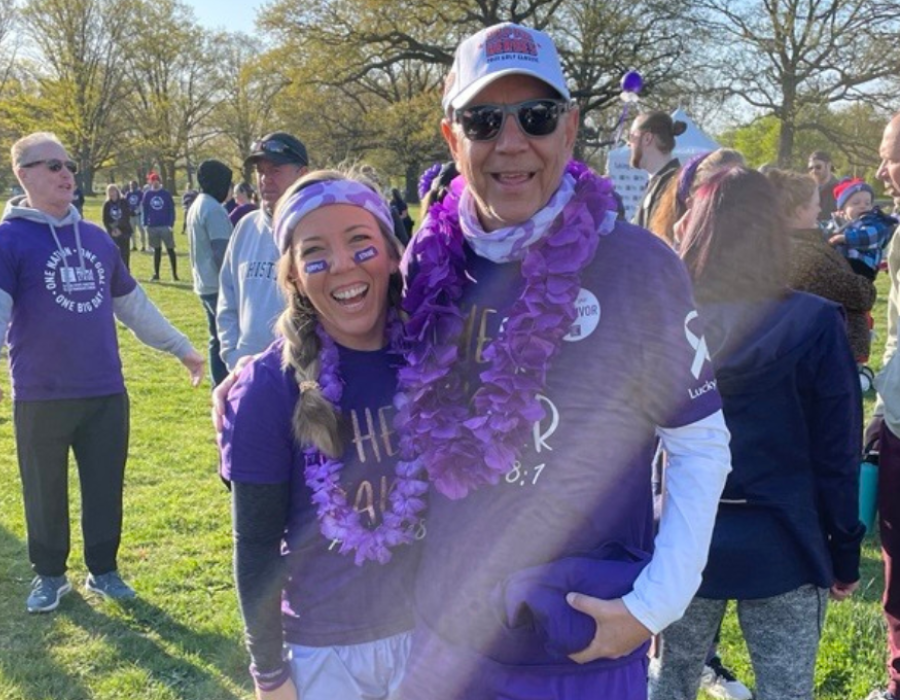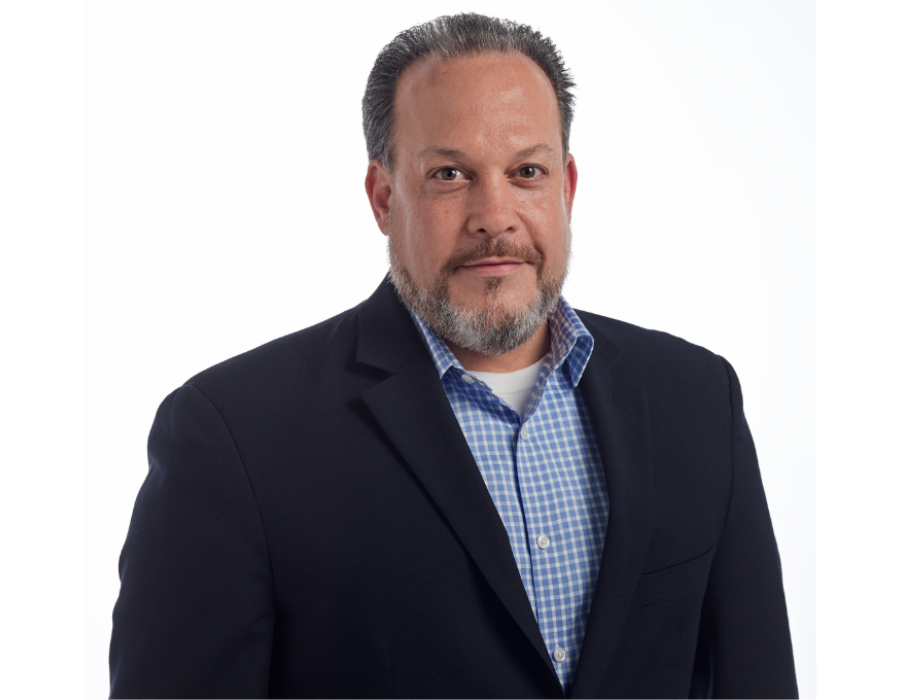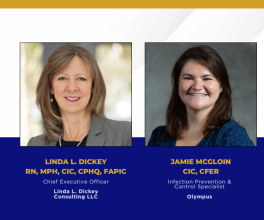
A Positive Attitude, a Marathon, and a Mulligan: One Family’s Way to Field a Curve Ball
Summary: In the face of a devastating diagnosis of pancreatic cancer, this father-daughter duo share their inspiring story of resilience and advocacy on the OlympusTalks podcast, part of the DeviceTalks platform. Read more about their involvement in the Pancreatic Cancer Action Network, a nonprofit organization that Olympus has partnered with in relation to its endoscopic ultrasound portfolio.
As the head of sales and marketing for a card printing company that specializes in health insurance cards, Rob Schasteen was in the throes of fourth-quarter, end-of-year stress. But on top of the usual business headaches, Schasteen wasn’t feeling physically well, experiencing unusual gastrointestinal issues. “I just started feeling really … bad. Like I'd never felt before.” It was evident to others. “I had a couple of good friends … a husband and wife team that were retired nurses. They looked at me and said … ‘You need to go to the doctor.’” Schasteen said after a few misdiagnoses and a return visit to his primary care doctor, he was sent for medical scans that revealed the likely source of these symptoms: Stage IV pancreatic cancer.
Phone calls, a decision to uproot
“You’ve got three months, maybe six” Schasteen recalls the oncologist telling him. “And as you can imagine, [it’s] the toughest call any father can make to their kids,” he said. His daughter Brooke Schasteen-Smith and her husband had recently moved to Nashville. His other daughter lived in Kansas City.
Hear more from Brooke Schasteen-Smith about her decision to move to Pennsylvania.
At his first round of chemotherapy, Schasteen admitted, “I was trying to act brave, and I was scared to death.” He and his daughter both recalled a nurse who said, “‘Hey, Rob. You know what? Eighty percent of this is attitude. And the rest? There's nothing you can do. It's out of your hands.’”
‘A Marathon … not a sprint’
Fast-forward three years, and Schasteen-Smith’s get-answers attitude is evident. Now living with her husband and their child in Philadelphia, she plays an active role in her father’s care, even facilitating a second and third opinion on his care pathway. “We really dove into what treatment options could look like,“ said Schasteen-Smith. “This is a marathon; this is not a sprint…So we really wanted to understand the longevity of what that marathon could look like.”
It’s a fitting metaphor, as Schasteen-Smith dove wholeheartedly into advocacy with the Pancreatic Cancer Action Network (PanCAN), running a marathon in New York City to support the cause. “She just had a baby, and I tried to talk her out of doing it, but you can tell she's a little strong-willed so that didn't go very far,” said Schasteen. But she did. “She finished it and I'm very proud of her for that--and for many things--but that was kind of cool,” he said.

Left, Brooke Schasteen-Smith, with Rob Schasteen, her father, at PanCAN Purple Stride event, held annually in Philadelphia.
PanCAN’s support
“It was my fourth New York City marathon, but it was truly the most meaningful,” said Schasteen-Smith. “I knew my dad would be cheering me on at the finish line.” She was also inspired by PanCAN. “PanCAN has created a really special community,” she said, recalling their support from her initial outreach, the day she learned of her father’s diagnosis. “Within a week, we had a caseworker that was working with us,” she said, describing the myriad resources the organization provides. “My dad was diagnosed in January, and we had a PanCAN Purple Stride team by April,” said Schasteen-Smith. “We were able to raise over $10,000 that year.”
Listen to Rob Schasteen discuss his PanCAN mentor work.

Rich Burde, Director of Marketing, EUS Solutions, Olympus Corporation
Industry + advocacy
“PanCAN does an incredible job of being a patient advocate, helping them find care, and we as an organization want to be part of that as a social outreach,” explained Rich Burde, Director of Marketing, EUS Solutions, Olympus Corporation. “Many people within our network have been impacted by this disease. And we make the equipment that helps diagnose it,” said Burde, who detailed the Olympus pathway into advocacy, from the launch of its Pancreatic Cancer Screening website to Olympus sponsoring the first Purple Stride event in 2022, a fundraising walk held every April in Philadelphia. “It’s a very emotional day,” said Burde. “You get to meet both the survivors and the caregivers. People that are all focused on the same mission.”
Listen to Rich Burde discuss the Olympus EUS portfolio, and Olympus’ advocacy efforts.
The mulligan shot
“I can tell you from the very moment that I was diagnosed to today, I've never been alone. I've always felt like there's hope,” said Schasteen. His mind goes back to what that nurse told him about attitude, during his first chemotherapy treatment. “That has resonated with me, and I have shared that with people I've talked to over the last three years,” said Schasteen. “Life’s hard and we all get curve balls,” he said. “Sure, there’s times where I want to crawl over in a corner… up in a ball.” But a good friend told him: “That’s the worst thing you could do. Go out and get the mail, get up and move. Even if it's just to move a little bit, you’ve got to move in the right direction.” That attitude has made him see this phase of his life as a do-over. “It’s kind of like I’m a golfer. It’s … my mulligan,” he said. “If this diagnosis and this disease causes me to be a better person and it gives me the opportunity to help people, then you know what? It's been a great day. That's … what I try to focus on.”
Potential complications that may be associated with endoscopic ultrasound include, but are not limited to, the following: sore throat, infection, bleeding, perforation, and/or tumor seeding (when EUS-FNA or FNB is performed).





